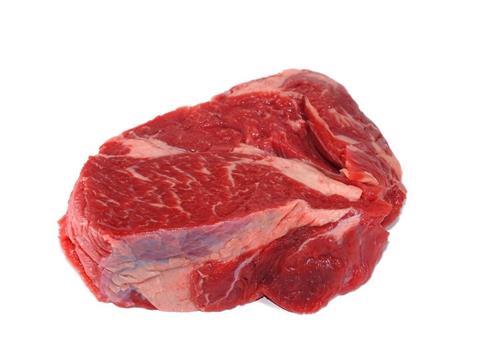The recently published Food Crime Annual Strategic Assessment (FCASA) has identified a wide range of vulnerabilities and risks across the food industry, including in the red meat supply chain.
The assessment was carried out by the Food Standards Agency’s National Food Crime Unit (NFCU) on behalf of the FSA and Food Standards Scotland with four clear aims:
- To highlight themes and trends in food crime intelligence
- Establish a baseline understanding of the UK food crime threat
- Enable prioritisation of issues which pose the greatest risk of harm
- Identify gaps in understanding.
In relation to the red meat supply chain, the assessment revealed that, based on reporting received over the previous 12 months, misdescription and diversion of red meat is one area of “considerable concern”.
Further areas of vulnerability noted in the report include livestock theft, illegal slaughter and meat species substitution.

Misdescription and diversion of animals
In the assessment the NFCU states that “the deliberate misdescription of animals and the misdeclaration or obfuscation of their movement can lead to animals unfit for human consumption entering the food chain through legitimate slaughter routes.”
The NFCU used the example of the movement of live horses from the UK into France and Belgium – which is entirely lawful should they have a genuine horse passport and an export licence which states the purpose of the export. The concern raised, however, is that horse exports are being falsely declared as being for leisure purposes.
The report suggests that horses are taken for slaughter without regard for the presence of veterinary medicine residues within the animals, or whether they are suitable for consumption.
Having said this, the assessment stated that “there is no evidenced connectivity to the UK food system at present.”
Livestock theft
The NFCU describes the theft of livestock as an act which “can be a clear precursor to food fraud, as animals entering the food chain in this way will inevitably breach traceability regulations.”
According to the NFU Mutual Rural Crime Survey 2015, 90,000 animals were stolen in 2014. It also claims that the value of thefts has risen over 20% since 2010, with the financial loss for 2014 estimated to be £7 million.
The NFCU says that this will present food hygiene risks as it is likely stolen livestock will be processed through illegal channels in order for the offenders to avoid detection.
Illegal slaughter
Illegal slaughter is “the processing of an animal for human consumption through unapproved premises” which the assessment states poses a risk to consumer health due to standards of hygiene and animal welfare not being able to be guaranteed.

According to the report, stolen livestock and animals which are unfit for consumption by virtue of age, traceability or the presence of residues from veterinary medicine are known to be slaughtered illegally.
Species substitution
In the report the NFCU confirms that meat species substitution predominantly relates to the replacement of lamb with beef, turkey or pork and is likely to be most common manifestation of food fraud experienced by UK consumers. It is said to be particularly common in spicy meals where other powerful flavours may impair the customer from detecting the fraud.
“Although rarely presenting health risks, substitution of this nature may have a significant detrimental impact upon the observance, by individuals of particular faith, of religious dietary practices,” the NFCU said.
The report states that meat species substitution in catering is currently observed through local authority sampling.
Conclusion
Andy Morling, head of the NFCU, said: “This assessment confirms that while the UK continues to have some of the safest and most authentic food in the world, we must remain vigilant to ensure we keep it that way.
“The NFCU was established in the wake of the horsemeat incident. That incident came at a huge cost to the UK food industry, not just financially but also in terms of reputation. It illustrated why it is vital for the food industry, law enforcement agencies and regulators to work together to combat the threat of food crime.
“We've come a long way in our first year but this assessment makes clear that there is much more to be done.”
This story was originally published on a previous version of the Meat Management website and so there may be some missing images and formatting issues.












